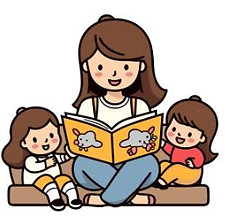Milagros de Montessori
Experience the "Miracles of Montessori"
Call Us at: +65 9829 1020
enquire@milagrosmontessori.com
NIDO
18 Months to 3 Years
The word 'Nido' means 'Nest' in Spanish - the homes that our little ones will inhabit for the first 3 years of education. The first three years of life mark a time of tremendous physical and psychological growth, exploration, and development. This is the period Maria Montessori described as the time of absorbent mind, when young children are capable of absorbing huge amounts of information about the environment through their senses - Taste, Smell, Touch, Sight and Hearing.

NIDO Curriculum
Keeping in mind the sensitive and absorbent period of the child, our NIDO curriculum is carefully designed to focus on 6 main areas of development - sensorial, cognitive, motor skills, language, practical life, and social skills.
Sensorial
Our Sensorial curriculum is designed to enage all senses of the child, not just hearing and sight. Our activities give the child an opportunity to :
• name, identify and match colors
• match objects by using senses
• explore creativity
• become aware of growth processes
• become aware of what living things need to survive
• practice quiet observation to experience and identify the elements of nature.


Cognitive
Our curriculum gives the child an opportunity to:
• expand concentration
• sort and match objects by concept
• plan and carry out a project
• manipulate geometrical shapes
• become aware of fractions
• develop logic and concentration
• become aware of numbers and what they represent
• expand vocabulary and develop visual acuity.
Motor Skills
Our motor activities are designed to incorporate practical skills and fine motor skills. They give the child an opportunity to:
• strengthen finger and hand muscles as preparation for writing
• develop manual dexterity
• develop hand-eye coordination
• increase concentration
• develop independence
• understand conservation of matter
• practice fine and gross motor skills
• practice moving without disturbing others
• use grasping and spooning implements.


Language
Our language activities give the child an opportunity to:
• develop and expand vocabulary
• name parts of human body
• recognize and practice phonetic sounds
• become familiar with the words for numbers and what they represent
• organise information
• identify and name objects
• develop pre-reading skills
• practice listening skills
• use their creativity and imagination.
Practical Life
Our Practical Life activities give the children an opportunity to:
• unfasten and fasten clothes
• use cutting and pairing implements
• take things apart and put them back together
• develop manual dexterity
• practise the wrist motions needed for later writing
• develop self-esteem and independence
• increase concentration
• follow a sequence of steps.


Social Skills
Our curriculum is designed to give them opportunities to:
• practise routines and behaviours that are mindful of others
• practise taking turns
• working with others towards a common goal
• develop manners
• recognise and describe emotions
• practise interacting with new people
• develop social skills
• develop a sense of community.






.jpeg)